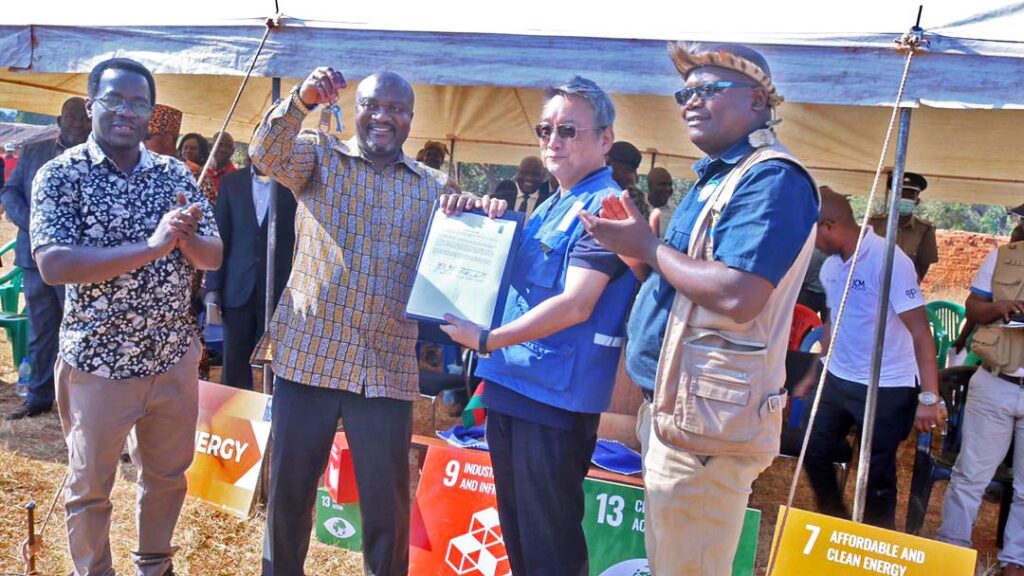
Energy
Community Energy Malawi to develop over 100 mini-grids
October 14, 2022 / Bester Kayaye

A local non-governmental organisation Community Energy Malawi (CEM) says it has planned to construct over 100 mini grids in Malawi’s rural areas that have no access to power from the national grid.
The mini-grids which will utilise either micro solar or hydro technologies will be cabled to economic enablers such as irrigation and agro-processing projects, entrepreneurship activities, clinics, schools and households.
The project is targeting to connect at least 2,000 customers and benefit 10,000 people directly per mini-grid site.
CEM’s Country Director Edgar Kapiza Bayani told Mining and Trade Review that the organisation intends to electrify over 100 rural communities that have no access to sustainable energy.
CEM already operates the 80kW Sitolo Solar Mini-grid in Mchinji which has 735 customers connected with potential to grow to 1,200 customers, benefiting over 6,000 people.
Bayani explained: “The success, impact and experience in operating the 80kW Sitolo mini-grid and our activities in Malawi communities since 2011 have in turn generated demand for similar services across the country.”
“The 100 mini-grids project is envisaged to catalyse creation of 126,000 jobs, enhance performance of existing small to medium scale businesses, catalyse 1,000 new enterprises as well as enhance social services in education, health and general well-being for 1-million men, women, boys and girls. By powering schools, clinics and police units/posts and providing street lights around villages, the project will also support social capital development.”
He also expressed optimism that the project will fast-track economic growth of rural areas and ensure community resilience as it is grounded in climate justice concepts to utilise renewable energy technologies in decentralized energy systems that are resilient and robust, and reduce carbon foot print.
“It will ultimately advance environmental protection by reducing the use of kerosene for lighting and charcoal for cooking,” he said.
Bayani said the project is backed by diverse energy policies in the country such as the Malawi Renewable Energy Strategy which observes that mini-grids have the potential to connect 27% of Malawians in remote off-grid areas.
He said: This vision is also espoused in the Malawi National Energy Policy (2018) and the Malawi Least Cost Geospatial Electrification Plan which posits that minigrids are a cost effective means to electrify communities that are more than 10km from grid.”
“The project will favourably complement government’s goal of increasing access to electricity for Malawians. As Government works on increasing grid access, we are working with off-grid communities and catalyzing small scale factories as is the case at Sitolo where there is a sunflower oil processing facility. The mini-grids will be deployed in accordance with the Mini-grid Regulatory Framework.”
Meanwhile, CEM is working with another NGO Challenges WorldWide in conducting a prefeasibility study for the project and it is also finalizing plans to expand Sitolo Mini-grid to accommodate a new village as well as growing demand to cater for facilities like a third maize mill and other productive loads.
“We secured support from The Pebble Trust of Scotland and some Scottish Friends which is enabling us to visit the communities that expressed interest in mini-grid projects. So far we have visited Mchinji, Ntchisi, Salima, Nkhotakota and part of Lilongwe where about 25 villages have shown potential. We are on course to visit isolated villages that cannot be easily accessed in the rainy season in northern and southern regions before mid-November.”
The organization has also secured preliminary investment deals from different equity, grant making and loan financiers from mainly United States and Scotland, who are anticipating a full investment plan and finalization of other details.
“A financial institution Green Max Capital is also working with us in a deal that will see the United States Trade and Development Agency financing some of the activities. We are working on setting up a Special Purpose Vehicle called CEM Minigrids Ltd to accommodate equity investors and also operate on business lines”
CEM has executed several leading initiatives in Malawi’s remote areas impacting thousands in 17 districts.
Other than the 80kW Sitolo Solar Minigrid, CEM has also implemented projects such as solar powered irrigation and cold storage; resilient solar systems in hospitals; sun ovens for rural bakeries; and policy advocacy.
Recently, CEM has been shortlisted for the ASHDEN 2022 International Award in the Energy Access Skills category.































